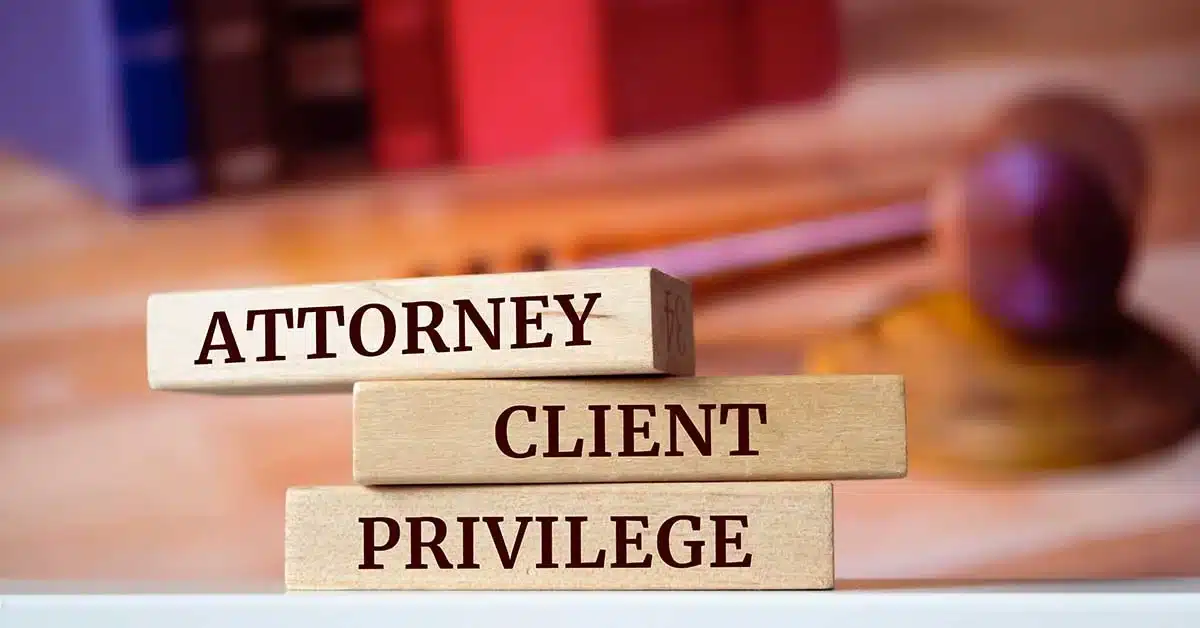
Attorney-Client Privilege
Attorney-client privilege is a legal principle that protects confidential communications between a lawyer and their client. This privilege encourages open and honest communication, allowing clients to share information freely without fearing that their disclosures may be used against them in court. At 770GoodLaw, we prioritize the integrity of attorney-client privilege, ensuring that all interactions with our clients are handled with the utmost confidentiality and respect.
Purpose and Importance of Attorney-Client Privilege
The core purpose of attorney-client privilege is to create a secure environment where clients feel comfortable sharing all relevant details of their case. By fostering transparency, the privilege enables attorneys to provide the best possible advice and representation. Key benefits include:
-
Building Trust: Privilege helps establish a strong relationship between the client and attorney, built on trust and confidentiality.
-
Effective Representation: When clients disclose all information, attorneys can build a more accurate and compelling case, addressing any potential weaknesses in advance.
-
Encouraging Honesty: Privilege assures clients that even sensitive details will remain confidential, encouraging them to be fully open about their circumstances.
Scope of Attorney-Client Privilege
Attorney-client privilege applies broadly to any communications intended to remain confidential between a client and their lawyer. This includes:
-
Verbal and Written Communications: Conversations, emails, letters, and messages between the attorney and client are protected, provided they are intended to be private.
-
Legal Advice and Strategy: Any advice given by the attorney, along with strategic discussions regarding the case, falls under the privilege.
-
Documents and Case Files: Written records, notes, and documents produced as part of legal representation are generally covered.
Limitations and Exceptions to Attorney-Client Privilege
While attorney-client privilege is comprehensive, there are certain limitations and exceptions where it may not apply:
-
Future Crimes or Fraud: Privilege does not extend to communications that involve planning or committing future crimes or fraudulent actions. If a client shares plans to commit a crime, the attorney may be legally obligated to disclose this information.
-
Third-Party Presence: Privilege may not apply if confidential information is shared in the presence of an unrelated third party, as this may compromise the privacy of the communication.
-
Waiver by the Client: Clients can waive their privilege voluntarily, allowing their attorney to disclose specific information. However, this waiver must be intentional, as once waived, privilege cannot be easily reinstated.
-
Disputes Between Attorney and Client: In rare cases, if a dispute arises between the attorney and client, certain privileged information may be revealed as part of the dispute resolution.
How Attorney-Client Privilege Protects Clients in Legal Matters
In cases involving personal injury, accident claims, or other sensitive issues, attorney-client privilege is invaluable in protecting clients’ interests. This privilege allows clients to discuss all aspects of their situation, including any concerns or uncertainties, without fear of reprisal. As a result, attorneys can work proactively to address potential challenges, strengthen claims, and develop well-rounded legal strategies.
For example, in a car accident case, privilege enables clients to discuss details that could impact liability or damages without worrying that these details could be disclosed to the opposing party. By safeguarding these communications, attorney-client privilege allows clients to approach their cases with confidence.
Protecting Attorney-Client Privilege: Best Practices
At 770GoodLaw, we take proactive steps to protect the integrity of attorney-client privilege for every client. Our approach includes:
-
Confidential Communication Channels: We use secure methods for client communications, such as encrypted emails and private meetings, to ensure all interactions are protected.
-
Educating Clients on Privacy: We advise clients to avoid sharing case details with outside parties and to use caution when discussing their case, even with friends or family, to maintain privilege.
-
Clear Waiver Guidelines: If privilege waiver is necessary, we ensure that clients understand its implications fully, enabling them to make informed decisions about their rights.
How 770GoodLaw Upholds Confidentiality for Every Client
Attorney-client privilege is central to our work at 770GoodLaw. We believe that strong, confidential communication forms the backbone of effective legal representation. By prioritizing privacy and trust, we empower clients to share openly, knowing their disclosures are protected. Our firm’s commitment to Relentless Reliability and Sincetegrity ensures that every conversation, document, and piece of advice remains confidential, supporting our clients’ best interests at every stage of their case.
